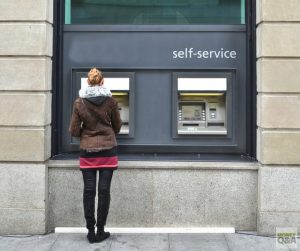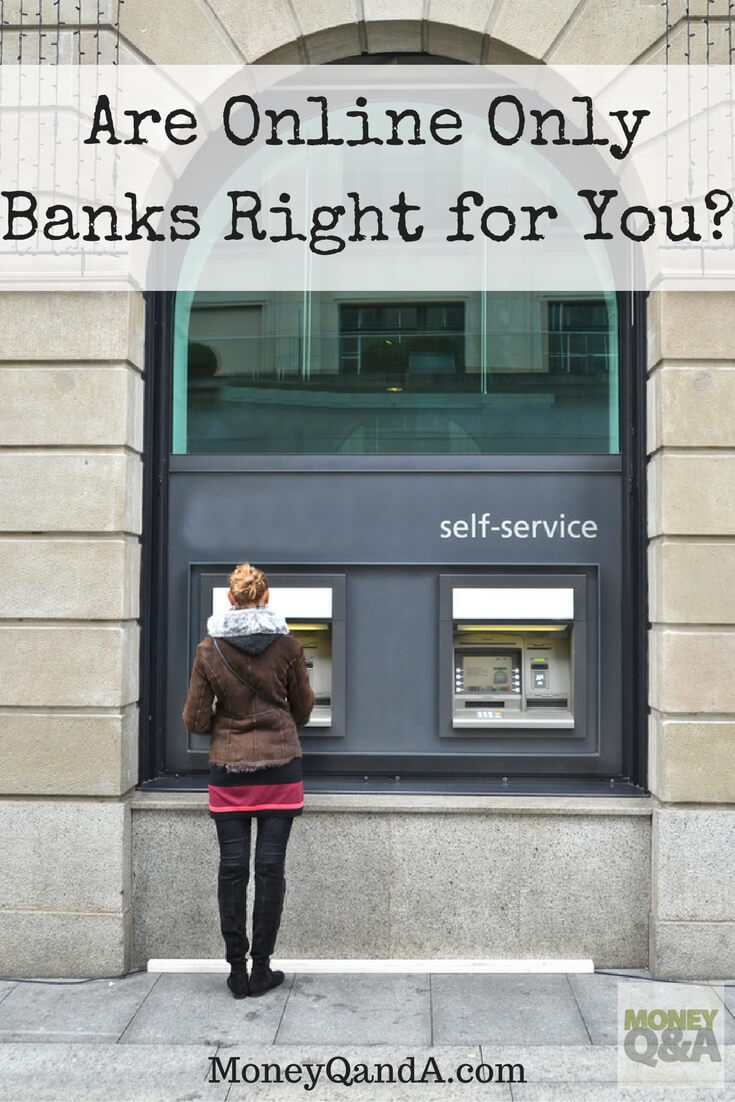
Is online banking safe? How do you choose the right online bank? Have you ever considered banking with a bank that doesn’t have any brick and mortar branches?
Mobile and online banking options are more popular than ever. The Pew Research Center’s nationwide survey found that a majority of internet users bank online, and more people join the online banking bandwagon every year.
In fact, the Federal Reserve reported that 35% of consumers have used mobile banking, while 74% of consumers used online banking. It’s no wonder why people are increasingly turning to the internet to access, transfer, and manage their money: it’s convenient, you don’t have to talk to anyone (if you don’t want to), and online banking is safer than you might think.
While most consumers engage in some online banking nowadays, many people still rely on brick-and-mortar banks’ online portals. However, some consumers are taking it a step further with online-only banks such as Ally, Aspiration, and GoBank.
Which Online Bank Is Right For You?
According to the Wall Street Journal, as many as 11% of consumers switched to online-only banks last year, which suggests that it is a growing trend for people who are fed up with traditional banking and its high fees and few rewards.
If you’ve considered switching to an online-only bank, here are a few questions you should ask yourself before making the move.
35% of consumers have used mobile banking, while 74% of consumers used online banking. Click To TweetIs Online Banking Safe?
Is online banking safe? In short, yes. For everyday checking accounts with major web-based banks, such as Aspiration’s Summit Account or Ally’s checking accounts, rest assured, your deposits (up to $250,000) are FDIC-insured.
Online banking is safe as long as you do your due diligence and research the bank’s legitimacy before dumping your life savings into a new account. It’s also important to protect your passwords (and choose complicated ones!), just as you would with your personal information and pin code for traditional banking.
What do you think? Is online banking safe? Have you been hesitant to bank with a bank that is solely online? What’s holding you back from banking online?
What Benefits Do Online Only Banks Offer?
Customers get the short end of the stick when it comes to interest rates on accounts they have with major banks like Bank of America, Chase, Wells Fargo, and Citibank, and even credit unions have little to offer when it comes to interest-accruing balances.
While “non-jumbo deposits” ($100,000 or less) accrue as little as 0.06% interest in traditional savings accounts and 0.04% in traditional interest checking accounts, online-only banks tend to offer their customers significantly higher rates.
For example, Ally offers an average APY of 0.60% on interest checking (0.56% higher than the national average). It’s also possible to rake in as much as 1.0% interest on your savings account if you choose a bank (like Aspiration) that offers it and fulfill the requirements, such as minimum balances and minimum monthly deposits.
Online-only banks, since they don’t have any physical locations where you can withdraw money, also tend to offer refunds on ATM transactions (up to a certain amount), wherever you go. Either they already have a pre-existing partnership with a few banks that allows them to offer their customer free ATM withdrawals, or they just reimburse your withdrawal fee before it dings your account balance.
Since online-only banks typically cater to tech-savvy customers, a majority of them offer mobile apps to help you manage your money on the go. You can cash checks directly from your phone – by taking a picture of the check itself and your endorsement signature – and make payments or transfer money directly from your smartphone.
Why Isn’t Everyone Switching to Online Banks?
Online-only banks aren’t perfect. Given the prevalence of sophisticated cyber hacking techniques nowadays, you still need to safeguard your online banking transactions instead of just hoping the bank will completely protect you from fraud or theft.
Banks are developing new in the meantime, but you’re never 100% protected. However, the threat of cyber attacks also applies to customers with traditional, major banks, who also do some banking or money management online, so this risk isn’t unique to online-only banks.
There’s also the hassle of switching over your accounts to the new bank. Sure, the average family has 15 bank accounts, which opens up the possibility of managing multiple checking and savings accounts without funneling all of your money into one institution.
But, to get access to the high-interest benefit of online-only banks, you’ll want to deposit a significant chunk of change into that account, which necessitates transferring money, shutting down some current accounts, reassigning payments for loans and credit cards to be withdrawn from the online account, etc. In short, it could be a hassle.
Online banks aren’t flawless, but the low overhead costs for online-based banking institutions create several financially rewarding opportunities for their customers. If you want higher interest rates on your deposits without the risk of losing money in a non-FDIC insured account, then the online, accredited banks could be great resources.
The refunded ATM fees and on-the-go mobile banking options are additional benefits worth considering. So, conduct research into which bank might be best for you and try it out!
What do you think? Is online banking safe? Have you been hesitant to bank with a bank that is solely online? What’s holding you back from banking online?


I absolutely love online banking. The convenience and the low fees make them very attractive options for potential customers.